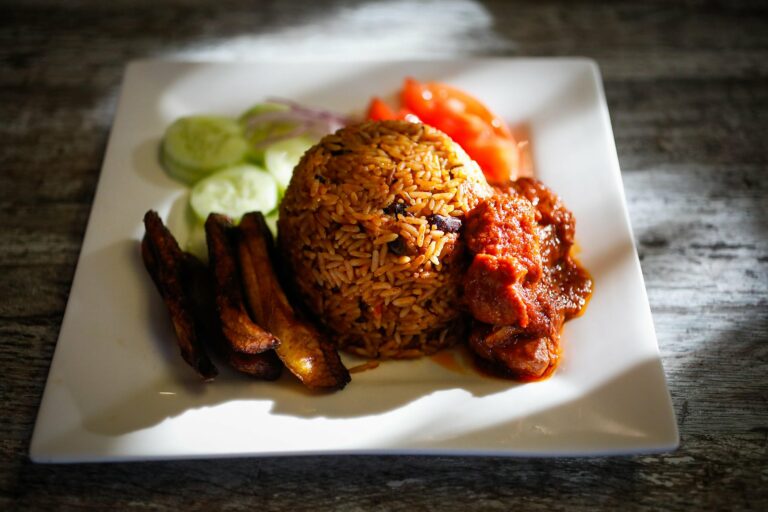Introduction: Liberian Cuisine
Liberian cuisine is a fascinating blend of African, European, and American culinary traditions. The country’s cuisine is heavily influenced by the diverse ethnic groups that inhabit the country, including the Kpelle, Bassa, and Loma people. Liberian cuisine features a variety of dishes made from local ingredients such as cassava, plantains, rice, and yams. Liberia’s unique culinary heritage makes it a popular destination for foodies looking to explore new flavors and taste sensations.
Major Food Staples in Liberia
The most important staples in Liberian cuisine are rice, cassava, and plantains. Rice is the main food crop in Liberia and is a staple ingredient in many dishes. Cassava is also widely consumed and is often made into fufu, a starchy side dish. Plantains are used in a variety of ways, including being mashed into fufu, fried, or boiled. Other common ingredients in Liberian cuisine include yams, sweet potatoes, peanuts, and okra.
Dietary Restrictions in Liberian Cuisine
Liberian cuisine is not typically associated with any specific dietary restrictions. However, some dishes may contain ingredients that are not suitable for certain diets. For example, many traditional Liberian dishes contain meat and seafood, which may not be suitable for vegetarians or vegans. Additionally, some dishes may contain high levels of salt, sugar, or fat, which may not be suitable for people with certain health conditions.
Vegetarian and Vegan Options in Liberian Cuisine
While Liberian cuisine is traditionally meat-heavy, there are a number of vegetarian and vegan options available. Many of the staple ingredients in Liberian cuisine, such as cassava, plantains, and yams, are naturally vegetarian and vegan-friendly. Additionally, many Liberian dishes can be adapted to meet dietary requirements. For example, meat can be replaced with tofu or tempeh, and traditional stews and soups can be made with vegetable broth instead of meat broth.
Health Considerations in Liberian Cooking
As with any cuisine, there are health considerations to keep in mind when cooking Liberian food. While traditional Liberian dishes can be high in salt, sugar, and fat, there are ways to make them healthier. For example, dishes can be prepared with less oil, and salt and sugar can be used in moderation. Additionally, Liberian cuisine features a wide variety of fresh fruits and vegetables, which can be incorporated into meals to boost their nutritional value.
Conclusion: Liberian Cuisine and Diet
Liberian cuisine is a rich and diverse culinary tradition that offers a variety of flavors and taste sensations. While there are no specific dietary restrictions associated with Liberian cuisine, there are ways to adapt dishes to meet different dietary needs and preferences. By incorporating fresh ingredients and making healthy cooking choices, it is possible to enjoy the delicious flavors of Liberian cuisine while maintaining a healthy and balanced diet.

